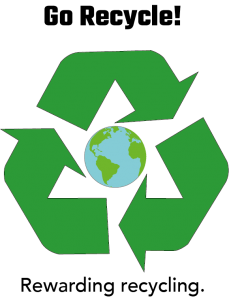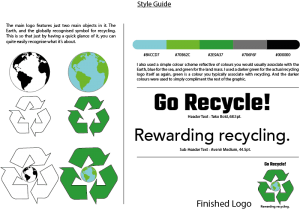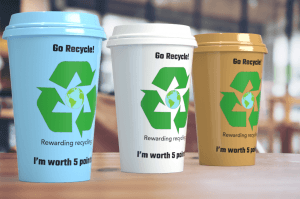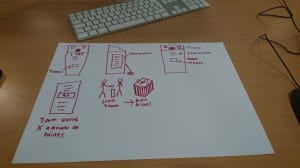I have completed the primary research which I needed. Although I only got 26 responses, there was a very clear pattern in the responses, even in the open ended questions which makes analysing the data very easy for me. It’s clear that there’s a problem, and it’s clear that it’s to do with people either not being able to recycle due to poor facilities, especially at Courts. Or because they don’t care enough to recycle which was another interesting thing I found when analysing my research. This research backs up what I expected to find through what I’ve seen previously through first hand experiences of living in student accommodation.
I have also completed two personas through using the data from this research. The two personas I’ve created are opposite ends of the students’ views on recycling. One who cares about recycling and puts effort in to do it, and one who doesn’t care. I was able to create these quite easily through using the research as a lot of the answers I’d need were contained within it.
Through looking at the research as a whole, it’s more than clear that there’s a problem with recycling, especially with students. There’s two key components to the problem, awareness and incentive. And the product needs both to be able to work, because people will usually not go out of their way to recycle unless they have a reason to.
In the workshop Graham briefly mentioned ‘Gamification’. Which is where you apply aspects of a game into the real world. An example of this would be collecting Tesco clubcard points. So perhaps applying gamification to a system encouraging people to recycle would work.
My idea is this, install numerous recycling bins around campus and courts, which accept different items such as tin cans, water bottles, etc. If you feed it an item, you receive tickets which you can collect and transfer into tokens which you can use to exchange for goods. That is the incentive, rewarding students for recycling. The awareness side would come from infographics printed onto the sides of these machines, which will also explain exactly how the system works, why it’s good to use it and how it helps the environment.
I’m yet to create the branding, that is one of my tasks for this week, although I have some ideas for it already.



